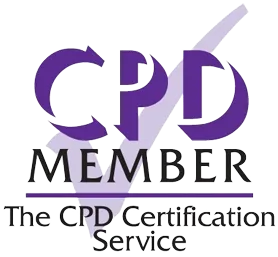29 Mar 2025
Recommended
Minimum 30 mins
Course
Access
Certification
Voiceover

Eating disorders are serious mental health conditions with significant impacts on physical health, emotional well-being, and social functioning. The Eating Disorder Awareness course is designed to equip healthcare professionals with a comprehensive understanding of these complex conditions, including Anorexia Nervosa, Bulimia Nervosa, and Binge Eating Disorder.
This course provides insights into the aetiology, risk factors, and warning signs of eating disorders. It explores evidence-based assessment tools, diagnostic criteria, and multidisciplinary treatment approaches tailored to diverse patient needs. Participants will also examine the medical complications associated with eating disorders, the ethical and legal considerations in their management, and strategies to support recovery through patient and family education.
Aligned with UK guidelines, this course empowers healthcare professionals to deliver compassionate, patient-centred care, improving outcomes and fostering recovery for individuals affected by eating disorders.

 £30
£30
Learning Outcomes.
By the end of this course,participants will be able:
To understand the characteristics and symptoms of different types of eating disorders.
To identify the physical, psychological, and social risks associated with eating disorders.
To recognise warning signs and risk factors for developing eating disorders.
To apply evidence-based assessment tools and diagnostic criteria for accurate identification.
To evaluate and implement evidence-based treatment modalities and multidisciplinary approaches.
To understand ethical and legal considerations in the management of eating disorders.
Course
Contents.
01
Definitions, prevalence, and demographics.
03
Biological, psychological, and social contributors.
05
Physical, psychological, and social consequences, including links to co-occurring conditions such as autism.
08
Evidence-based interventions and the roles of care teams in delivering effective treatment.

06
Use of screening tools, diagnostic criteria, and addressing diagnostic challenges.
09
Strategies for relapse prevention, family involvement, and empowering healthcare providers.
02
Focus on Anorexia Nervosa, Bulimia Nervosa, and Binge Eating Disorder.
04
General and age-specific indicators, including considerations for young people.
07
Identifying medical emergencies, managing complications, and monitoring health during treatment.
10
Professional responsibilities and patient rights in eating disorder management.
This course equips healthcare professionals with essential knowledge to identify, assess, and manage eating disorders effectively. By covering evidence-based practices for diagnosis, treatment, and recovery, it ensures participants can deliver compassionate, patient-centred care aligned with UK guidelines. The course promotes improved outcomes, fostering recovery and resilience for individuals living with eating disorders.
 Summary
Summary


